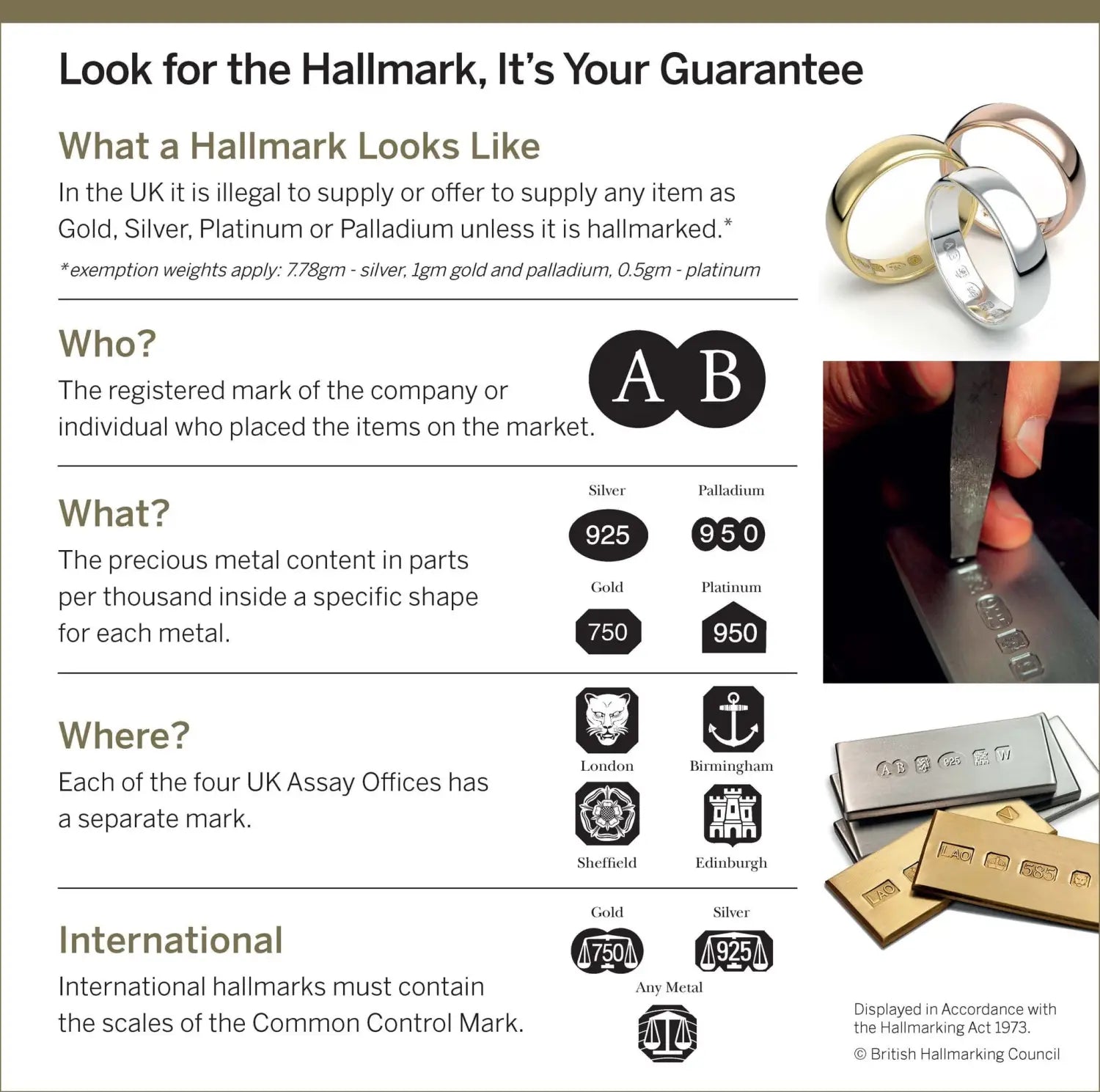Hallmarking
OUR COMMITMENT TO HALLMARKING
When it comes to manufacturing watches and jewellery, the precious metals used (silver, palladium, gold and platinum) are rarely used in their purest form. Instead they are usually alloyed with other metals to achieve a desired strength, durability, and colour.
As it is not possible to detect the precious metal content of an item by sight or by touch. It is, therefore, a legal requirement to have items consisting of silver, palladium, gold or platinum independently tested and following hallmarked before they can be described as such. Items must bear a hallmark at point of sale, subject to the following weight exemptions, or where hallmarking may physically damage an item:
Silver: mandatory for items above 7.78 grams; gold: mandatory for items above 1 gram; palladium: mandatory for items above 1 gram; platinum: mandatory for items above 0.5 grams.
Dipples is registered with both the London and Edinburgh Assay Office, ensuring our precious metal jewellery is compliant with the UK’s hallmarking regulations. All stock is subject to an internal confirmation process to ensure it meets the UK’s hallmarking regulations before it is dispatched to our customers.
For articles that are below the UK hallmarking Act’s mandatory weight for hallmarking Dipples operates a separate due diligence process which involves periodic voluntary testing of items that fall below the mandatory weight to ensure they meet the minimum fineness requirement.







